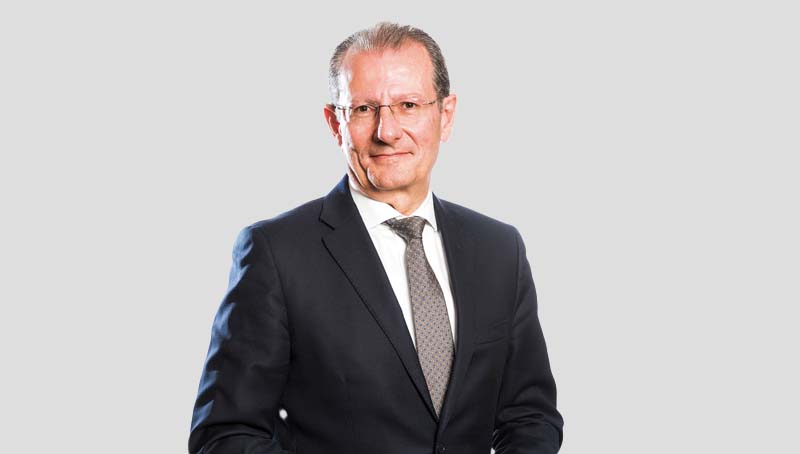“The ESA has always been the cornerstone of the national space agency”
2022 Begun with the 14th installment of the
now-traditional European Union space policy
conference in Brussels, debating on important
matters – which continued at the Toulouse Space
Summit on February 16.
The European Union
Secure Connectivity program took shape and
gained political momentum during both gatherings.
This is an ambitious program with an initial
budget request of 6 billion euros. According to
the Commission’s proposal for the 2023-27 period,
the EU would source 2.4 billion euros from various
budget items of the current financial framework,
with the remaining budget being sourced from
private investors or contributions by member
states.
If approved, it would become the third major
space program of the European Union, alongside
Galileo and Copernicus. It is evident that it is of
major importance for Spain and its industry to take
an active role in it, which requires
tangible actions and programs.
The creation of a spanish space agency will help manage our capabilities and establish a national policy that serves as a guide for both the public and the private sector"
The Aerospace PERTE will have
been published by the time this
magazine leaves the press. This
PERTE, funded with European
recovery funds, includes a series
of space projects that should imply
a significant boost for the sector.
The priority, from the industrial
standpoint, are major long-term
projects that propel the national
companies of the sector and allow
them to strengthen and improve their position in
the fields of communication, navigation, launch
vehicles and Earth observation.
Other countries
are seizing the opportunity offered by the European
recovery funds, leveraging them via the execution
of programs through a third-party agreement
with ESA, and connecting those programs with
long-term initiatives. This is clearly a model to be
followed. Programs targeted by the PERTE must
aim to maximize the profitability of long-term
investments and foster a balanced development of
the industry as a whole, both for well-established
and young industries, and encompassing largecaps,
mid-caps and small-caps.
This year we also expect to see the creation or
at least the consolidation of a Spanish Space
Agency model. The Bill to modify Law 14/2011 on
Science, Technology and Innovation, currently
pending approval by the parliament, authorizes
the creation of the Spanish Space Agency as a
government agency under the wing of the Ministries
of Science and Innovation and the Ministry of
Defense.
The creation of a Spanish space agency
will help manage our capabilities and establish
a national policy that serves as a guide for both
the public and the private sector. In this way, the
return on investments will be maximized, steering
national efforts in the field of space, efficiently
coordinating the various national organizations
linked to the space sector, fostering opportunities
for public and private collaboration, facilitating the
dual use of space capabilities and strengthening
the national space industry sector in a clear and
cohesive manner.
Moreover, the Agency will unify
the international collaboration and
coordination, and represent Spain
in the international space sector.
And in late 2022 we have the
upcoming ESA Ministerial Council,
where the Agency’s budget for the
next few years will be allocated in
the realms of science and space
exploration, space security, Earth
observation, telecommunications,
navigation, space transportation
and technology. The ESA has
always been the cornerstone
of the national space agency, being its main
driver of technological development, training
and consolidation across multiple domains.
ESA programs have been the mainstay of our companies’ development and their significant growth within the value chain, allowing us to create jobs and
export to commercial, international markets. It is,
therefore, a crucial undertaking where Spain must
increase its stake at least up to a level that is in line
with our GDP.
At the time, with an allocation of 250
million euros per year, Spain furnishes less than
5.5% of the total contributions by member states far less than we should. Substantially increasing
that share in 2022 is a must. The future of the sector
depends on it.





